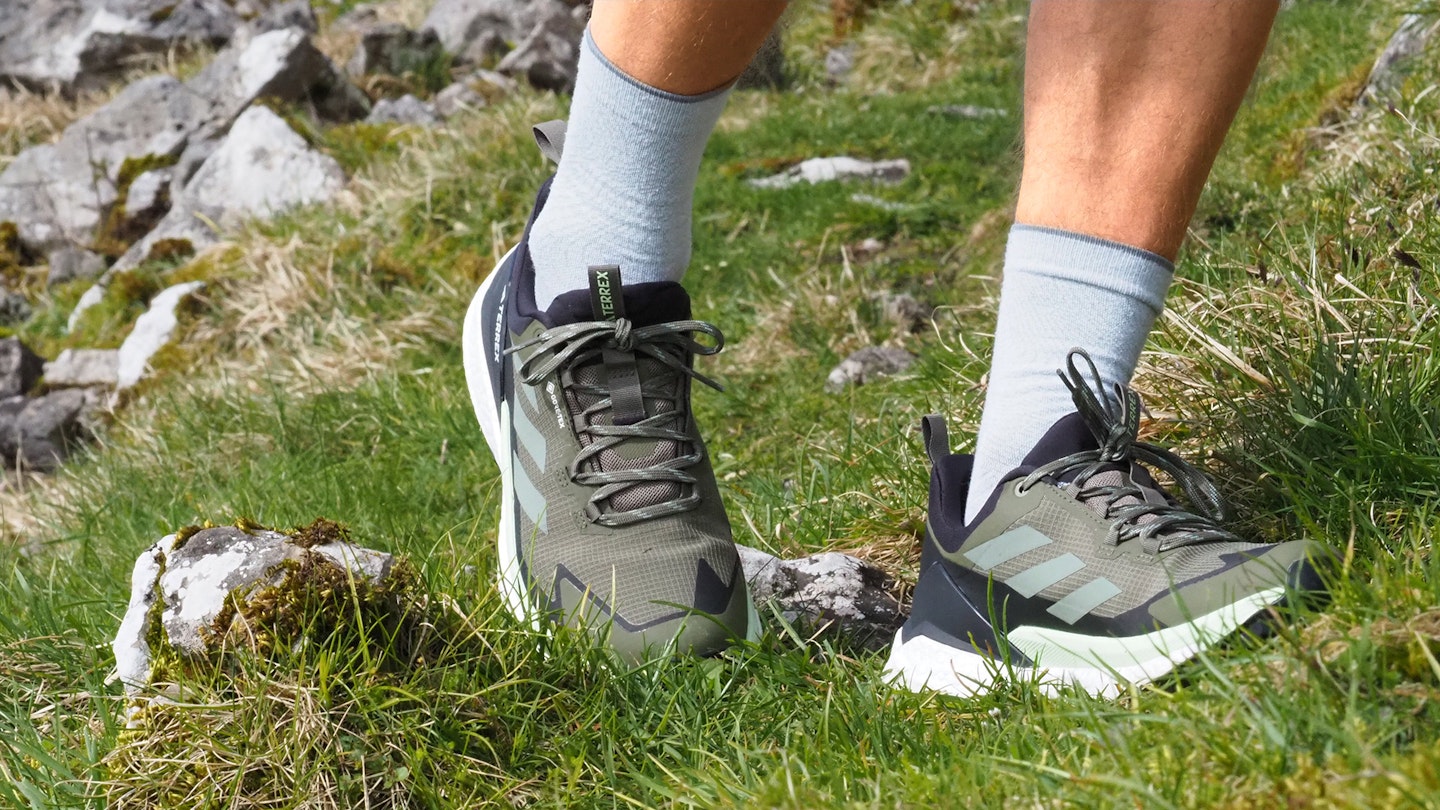Since its launch more than a decade ago, Adidas has successfully used its Terrex brand to capitalise on the growing demand for lightweight hiking gear, and its Free Hiker hiking footwear has been one of its biggest triumphs.
We’ve used and enjoyed the Terrex Free Hiker for a while – it's a superbly comfortable summer hillwalking shoe (or boot if you go for the mid option).
So, what is it that makes the Free Hiker so popular and, crucially, is it the hiking shoe for you? To answer both of those important questions, we’ve been testing the Free Hiker 2.0 Low GTX – the waterproof shoe version.
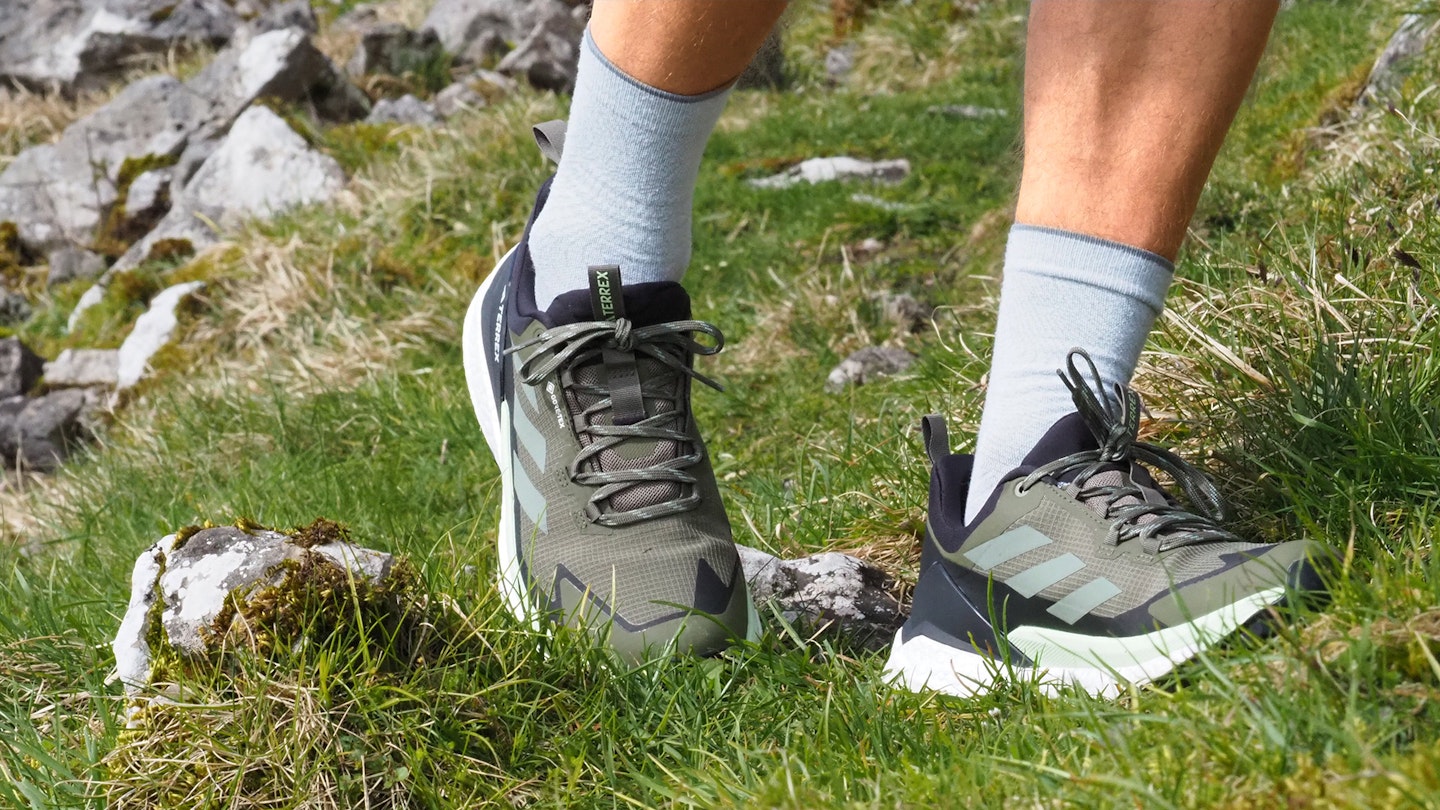
www.adidas.co.uk
Pros
- Very comfortable
- Reasonably durable
- Suitable for most hiking routes
- Waterproof and non waterproof versions available
Cons
- Could have better eco credentials
| Weight (per shoe) | 439g |
| Upper | Synthetic w/ Gore-Tex lining |
| Sole | Continental rubber |
| Sizes | UK 3.5 - 14.5 |
Design and features
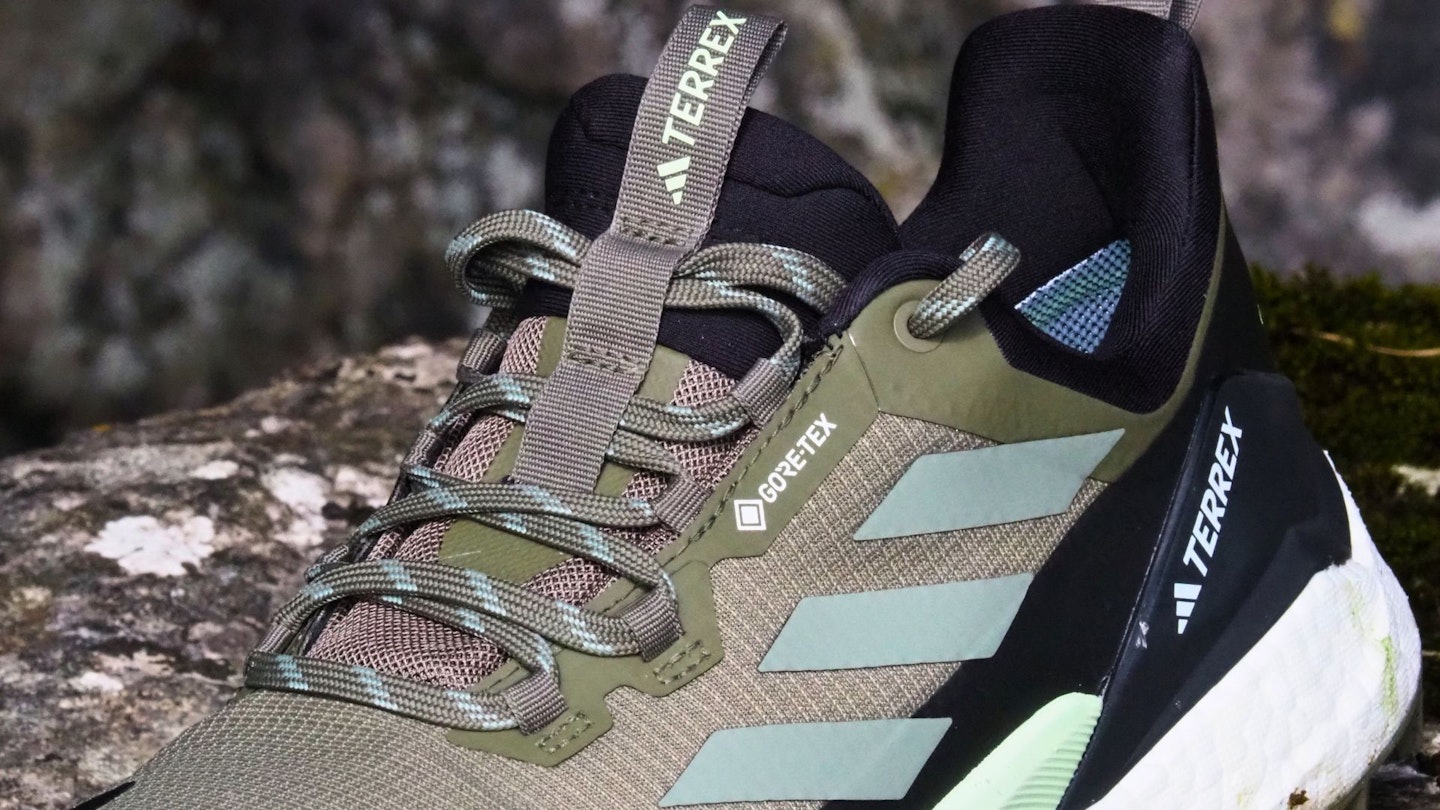
Forget hardcore trekking and mountain footwear, the Free Hiker 2.0 is all about mass appeal, aiming to deliver best-in-class comfort on hill paths and less demanding hikes.
Working our way from top to bottom, the upper is a full synthetic construction with a toe bumper and a strip of abrasion-resistant coating around the shoe for improved durability. At the heel there is a plastic heel clip that Adidas says aids stability. The Free Hiker 2.0 can be had with or without a Gore-Tex lining.
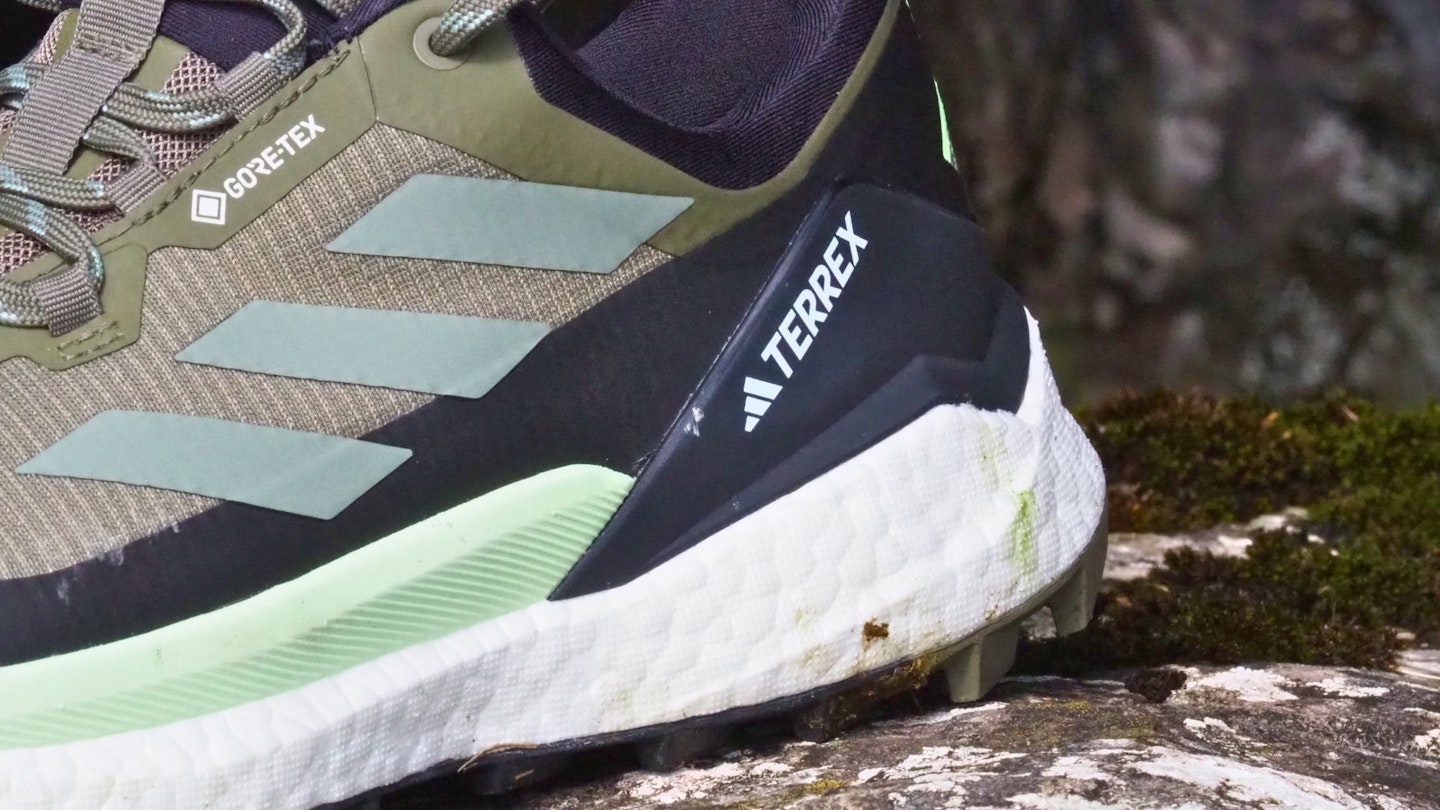
The midsole looks like it’s made of polystyrene but is Adidas’ BOOST midsole, which we know from previous experience is nice and squishy but is also quite dense and doesn’t really compact down over time. The outsole is made using Continental rubber.
At 439g per shoe, the Free Hiker 2.0 Low GTX is lighter than many of the classic sturdy leather hiking shoes but is noticeably heavier than ultralight options and trail running shoes.
Shop this product
Performance and comfort
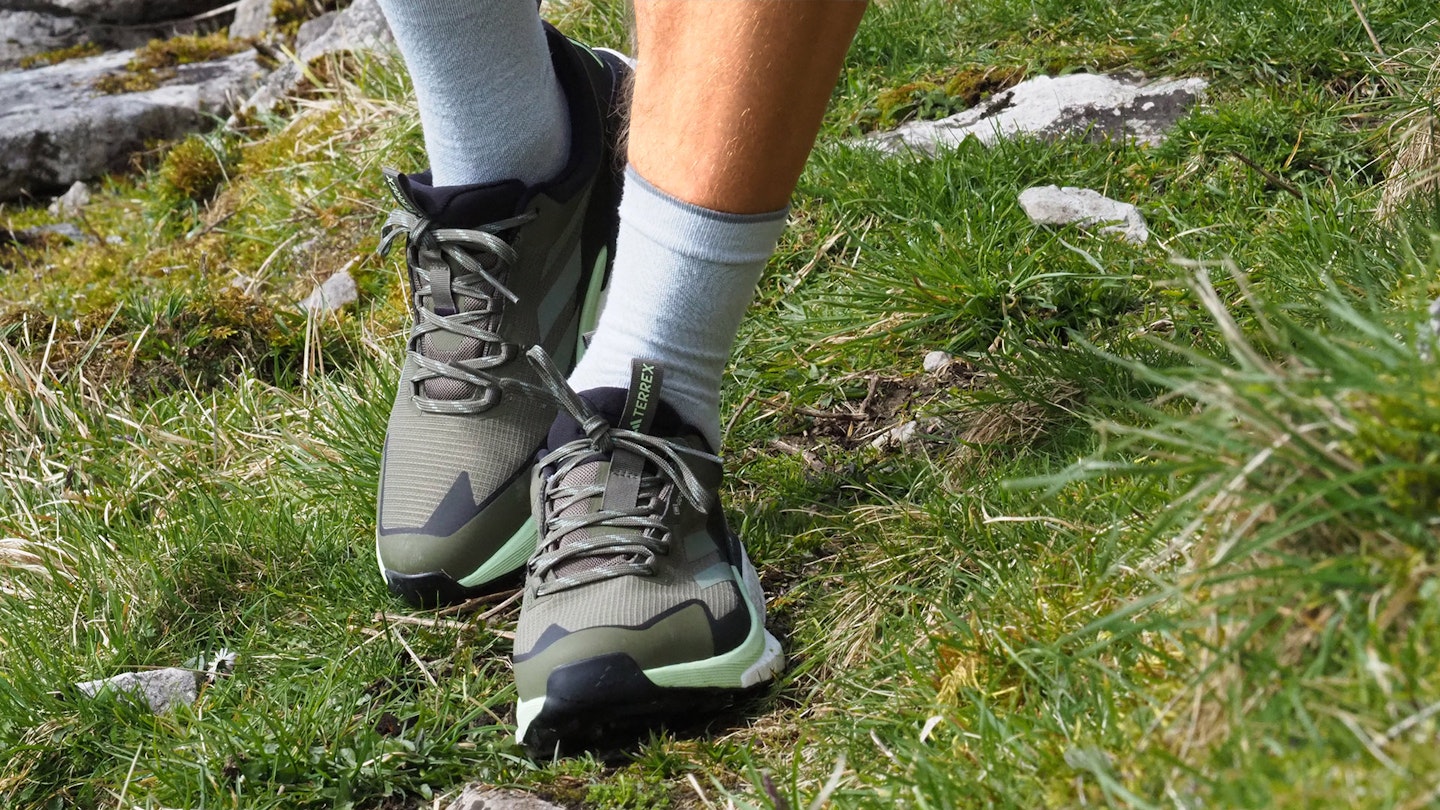
We’ve used both the low and mid versions of the Free Hiker and the low is our pick. In fact, we think it’s one of the most comfortable hiking shoes available right now.
The fit is right on the money (for our tester at least). At the back, the shoe is secure, contouring the shape of the heel perfectly. Padding around the Achilles and ankle is excellent too, although do note the heel tab is higher than on some hiking shoes, so to avoid rubbing use ankle or crew height walking socks instead of low-cut socks.
There is very mild arch support (you’d obviously use your own insoles if you have them) and there is a good amount of space at the forefoot. The width isn’t quite as generous as you find on Keen shoes but still offers enough room for toes to spread out.
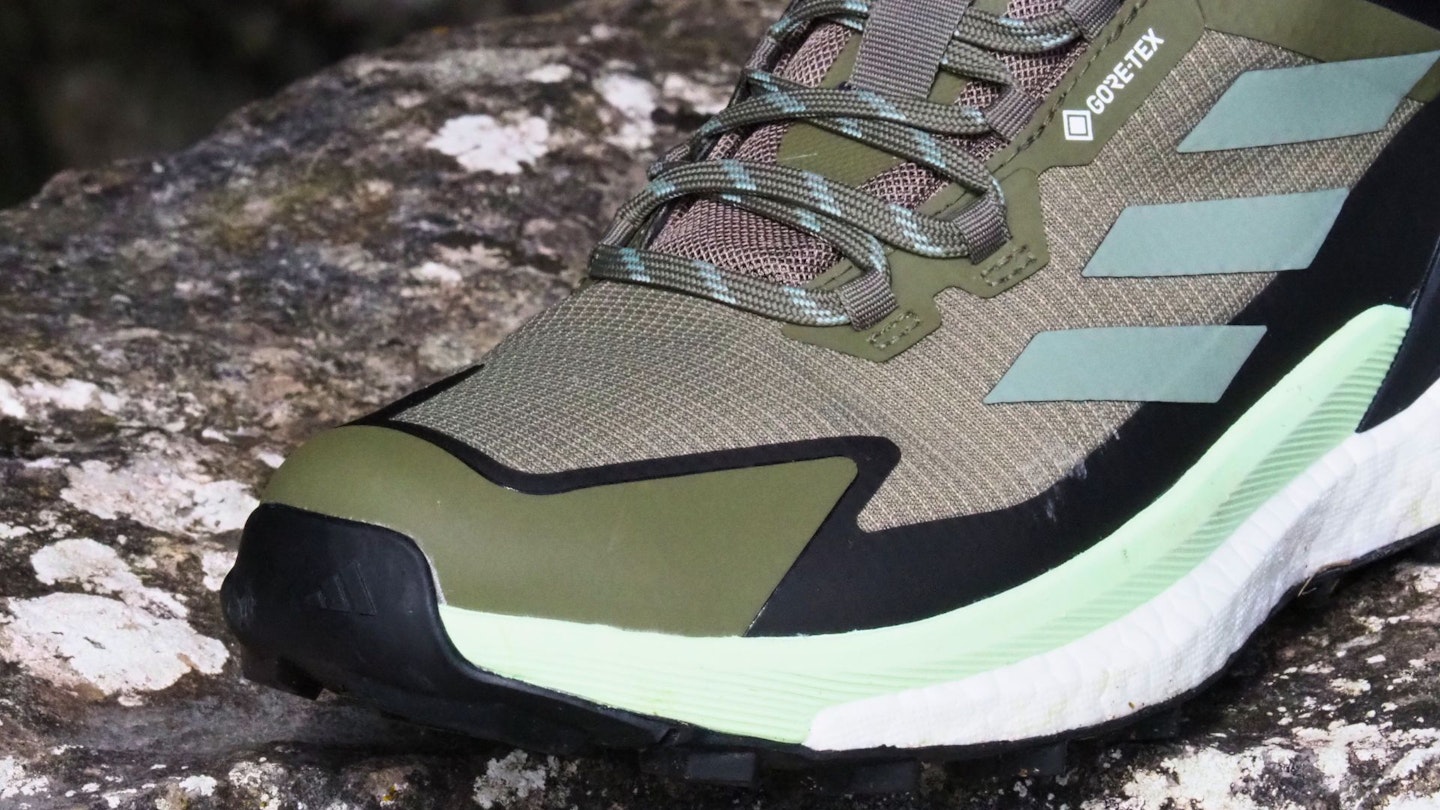
Clearly intended for walking rather than running, the midsole of the Free Hiker 2.0 has loads of cushioning at the heel (and plenty at the front too). Adidas claims the BOOST midsole on the Free Hiker 2.0 offers 15% more comfort and cushioning than its predecessor. In comparing the two, any tangible difference is somewhat inconsequential.
Shop this product
The beefy midsole combined with the midweight construction means the Free Hiker 2.0 doesn’t feel as agile to wear as lightweight rivals like the popular Inov-8 Roclite G 315 GTX V2 for example. But equally, it feels very stable and still lighter and more flexible than more heavy-duty hiking shoes designed for treks, mountains, and approach.
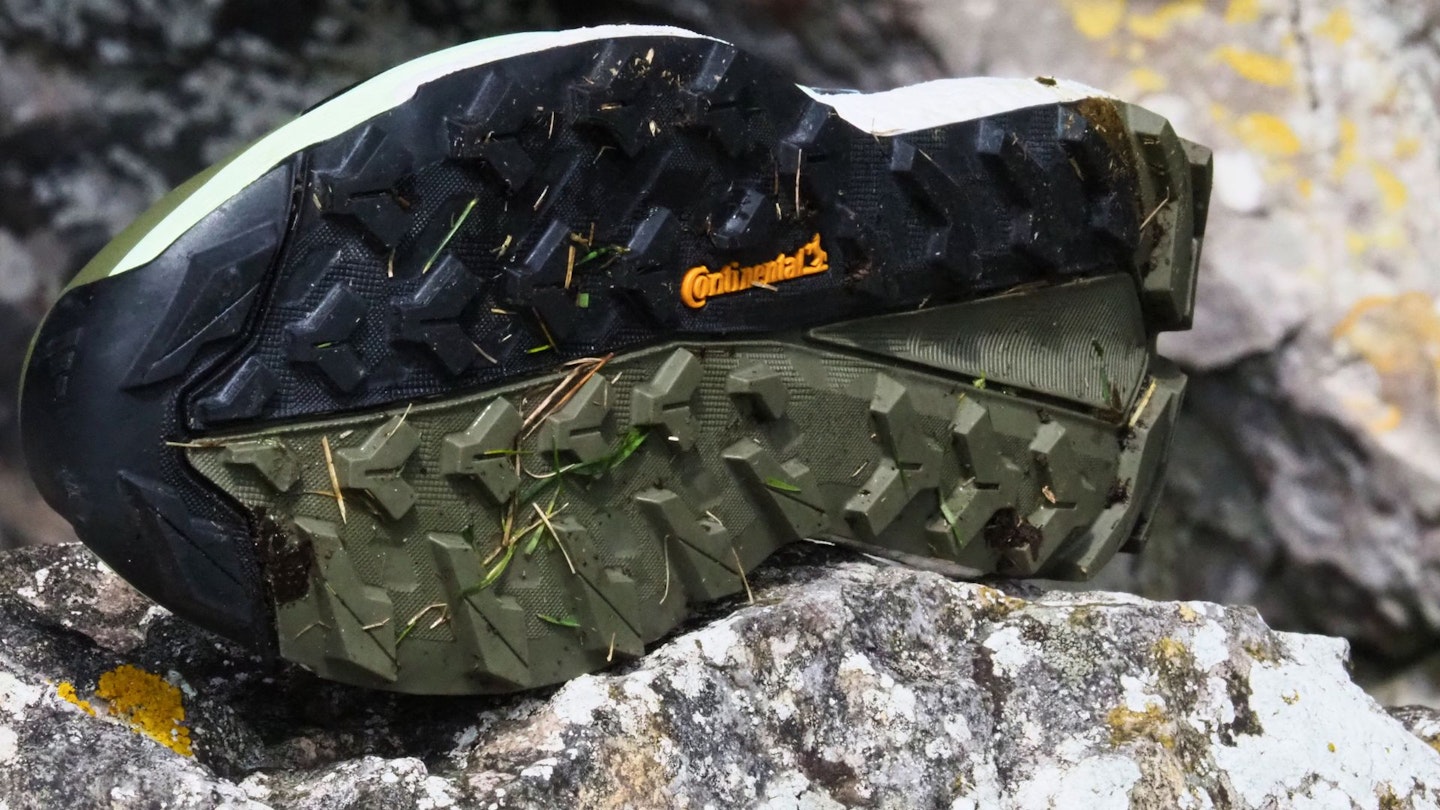
We like the Continental rubber outsole too. In keeping with the overall design of the Free Hiker 2.0, it performs best on trails and hard-packed off-piste routes. The Gore-Tex version we used has good levels of waterproofing for a shoe – the gusseted tongue helps considerably here – but as ever, breathability isn’t as good as the non GTX version. If you hike primarily in summer, go for the non-waterproof version.
Sustainability
The Free Hiker 2.0 Low GTX doesn’t boast any particular eco credentials, or are at least a bit unclear. For example, the mid version of the Free Hiker 2.0 claims an upper made from 50% recycled materials but the low version makes no mention of using recycled material.
All we can really say regarding sustainability is that the Free Hiker 2.0 feels more durable than its lightweight rivals.
Shop this product
Adidas also scores higher than most of the world’s other big fashion brands in Fashion Revolution’s Fashion Transparency Index, which measures and ‘ranks 250 of the world’s largest fashion brands and retailers based on their public disclosure of human rights and environmental policies, practices, and impacts, across their operations and supply chains.’
Price and competition
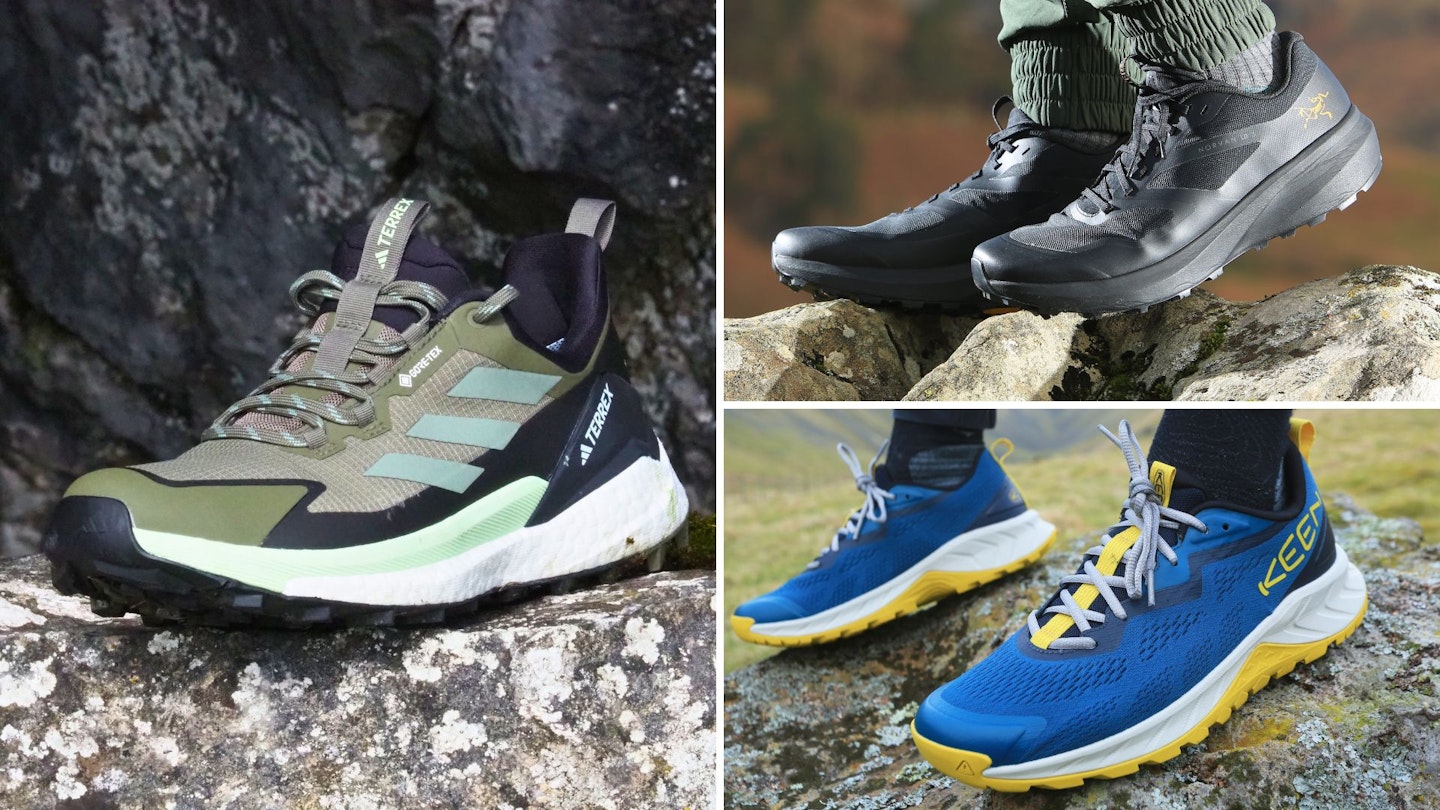
At the time of writing, the Free Hiker 2.0 Low GTX we tested has an RRP of £165. Although not cheap, it is a competitive price considering many lighter, less durable options have a similar price.
That said, there are rivals with a similar quality of construction that offer better value, such as Hoka’s Anacapa 2 Low GTX, which retails for £140. The non waterproof version (Anacapa Breeze Low) is a former Gear of the Year award winner from us and rivals the Free Hiker 2.0 for comfort as well.
Shop this product
Verdict
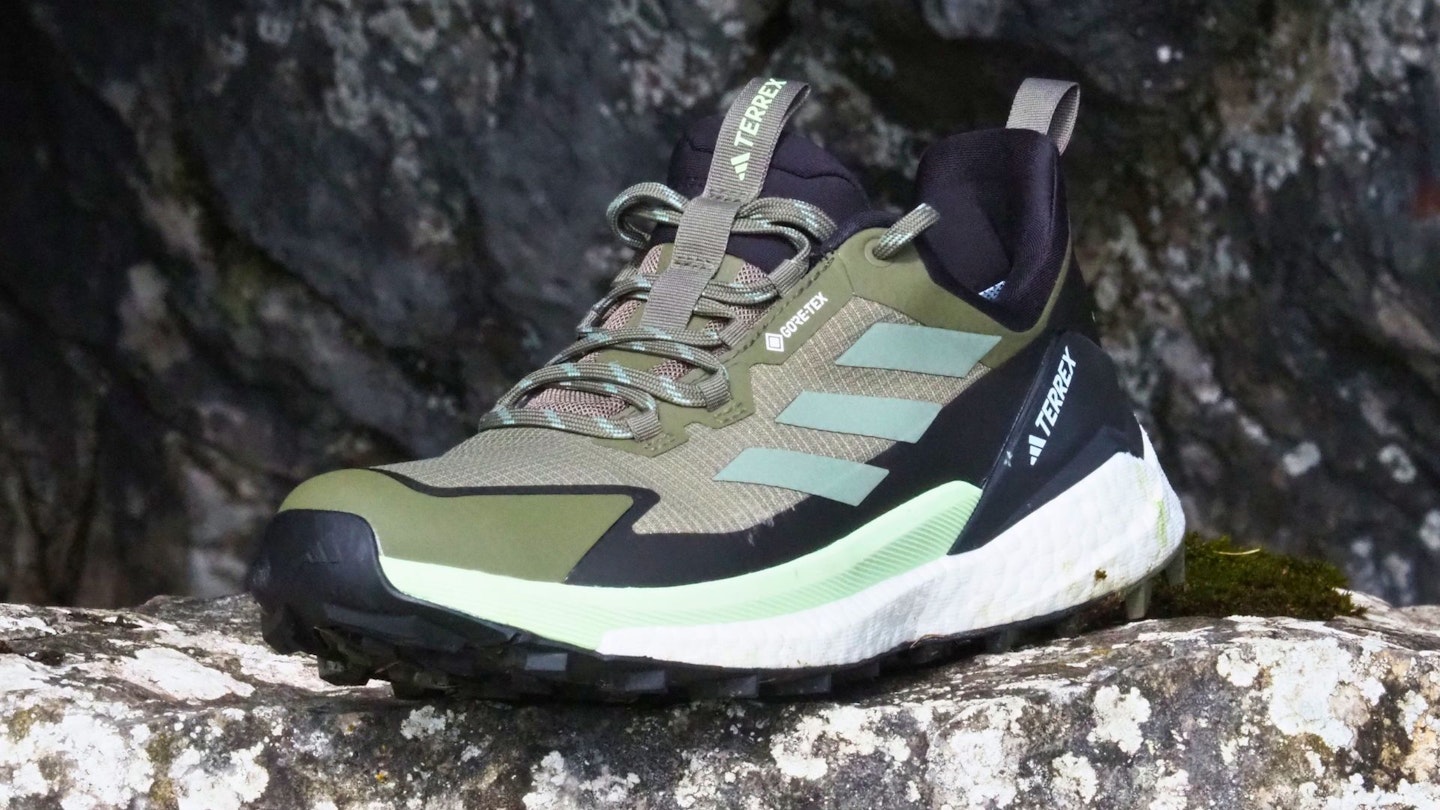
Adidas has done a great job with the Free Hiker 2.0 Low. It’s super comfortable, pretty durable, and very capable outside of a technical mountain or approach setting.
It could certainly have better eco credentials, as so many synthetic and lightweight outdoor footwear could, but this really is the only significant flaw. It's a hiking shoe that is suitable for an awful lot of hikers.
How we tested

The Adidas Terrex Free Hiker 2.0 Low GTX was tested by Chris Williams (above), who is one of our staff writers and gear testers.
Chris joined LFTO in 2021, bringing several years’ journalistic and outdoor industry experience to our team.
